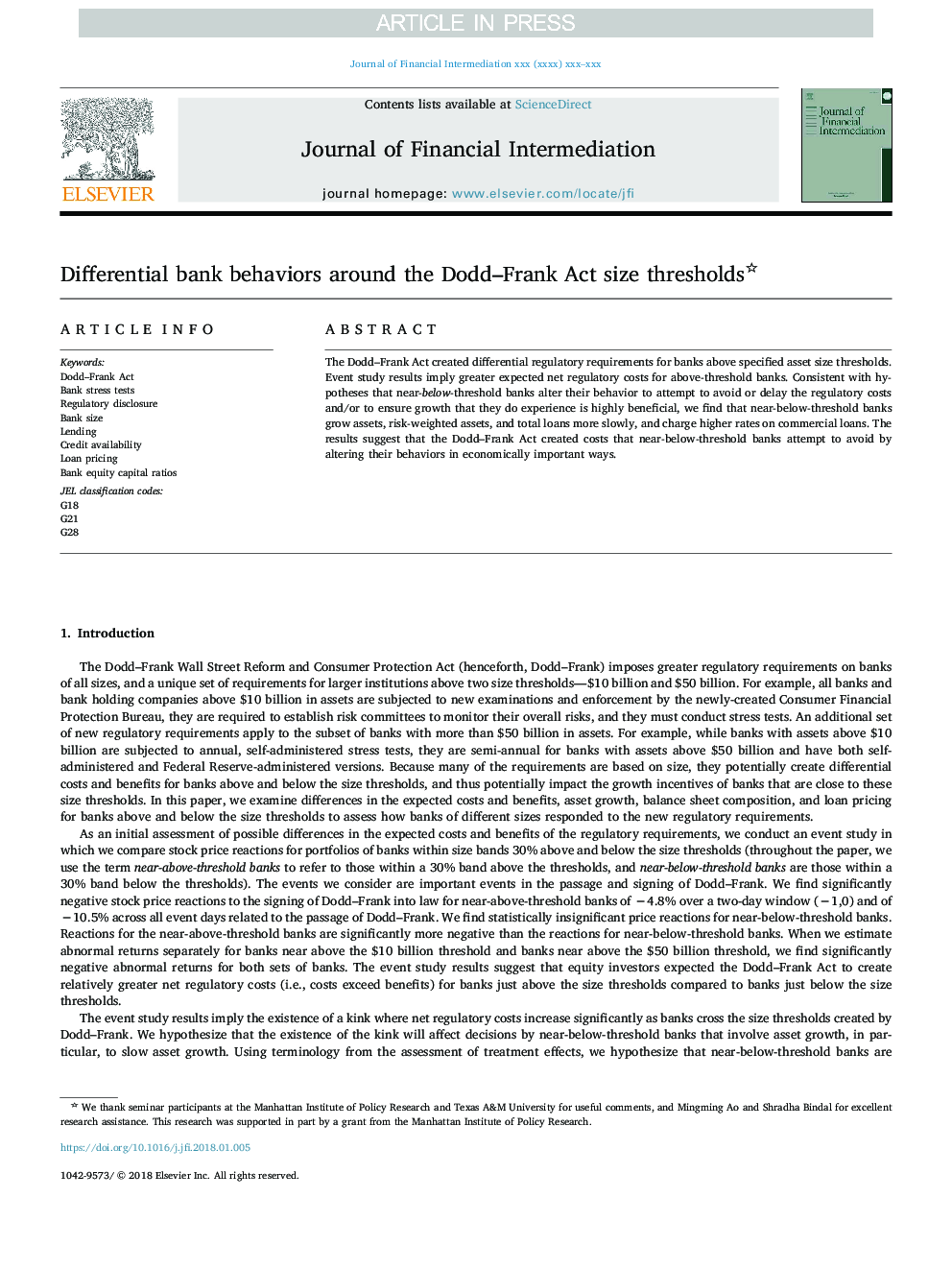| Article ID | Journal | Published Year | Pages | File Type |
|---|---|---|---|---|
| 7362243 | Journal of Financial Intermediation | 2018 | 11 Pages |
Abstract
The Dodd-Frank Act created differential regulatory requirements for banks above specified asset size thresholds. Event study results imply greater expected net regulatory costs for above-threshold banks. Consistent with hypotheses that near-below-threshold banks alter their behavior to attempt to avoid or delay the regulatory costs and/or to ensure growth that they do experience is highly beneficial, we find that near-below-threshold banks grow assets, risk-weighted assets, and total loans more slowly, and charge higher rates on commercial loans. The results suggest that the Dodd-Frank Act created costs that near-below-threshold banks attempt to avoid by altering their behaviors in economically important ways.
Related Topics
Social Sciences and Humanities
Business, Management and Accounting
Strategy and Management
Authors
Christa H.S. Bouwman, Shutingâ(Sophia) Hu, Shane A. Johnson,
